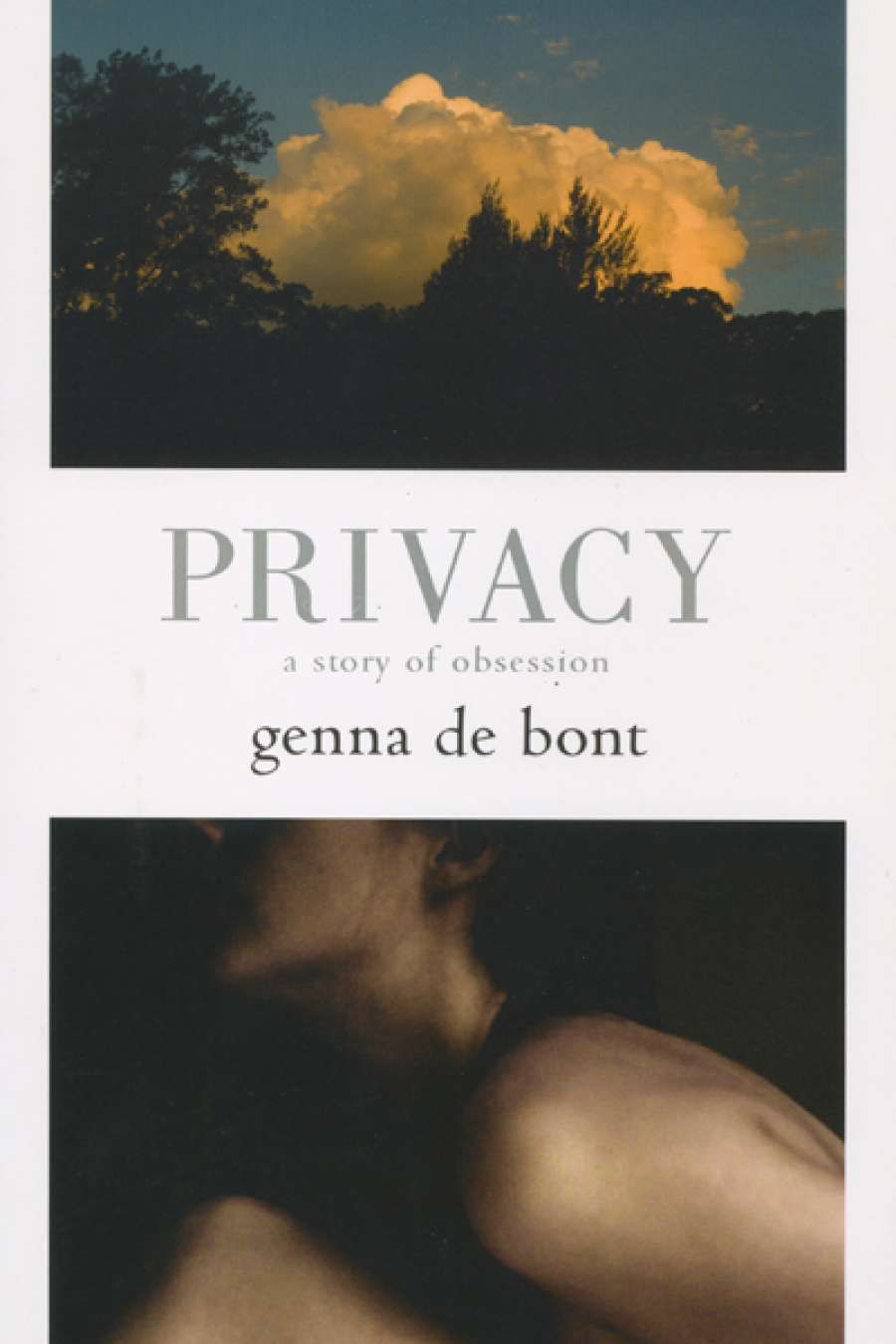
- Free Article: No
- Contents Category: Fiction
- Custom Article Title: Rory Kennett-Lister reviews 'Privacy'
- Review Article: Yes
- Article Title: Privacy
- Online Only: No
- Custom Highlight Text:
Privacy is an elusive concept. As Jonathan Franzen notes in his essay ‘Imperial Bedroom’ (2002), it is defined by negativity – freedom from interference, from disturbance, from observation – but resists any positive explanation. Privacy, Genna de Bont’s second novel, explores this slippery idea and uses privacy’s nebulous existence to call into question its relationship with exhibitionism, surveillance, sex, and morality.
- Book 1 Title: Privacy
- Book 1 Biblio: Fourth Estate, $29.99 pb, 377 pp, 9780732295745
Set in a country town located one hour from Melbourne, Privacy is told through the eyes of Wren Fox, an artless man approaching middle age. When not caring for his ageing, demented mother, he works for Richard Stanley as an assistant in his luthiery, and as a caretaker of the Stanley family’s holiday home, Ashmore House. Though seemingly asexual, Wren has long been infatuated with Richard’s elder sister, Madeline. When Wren discovers Madeline’s two blogs, one detailing her sexual exploits and the other her battle with an insistent stalker, his simple world view is gradually supplanted by a growing obsession.
For a novel that deals with privacy, something that we fiercely protect, the narrative style is intriguing. Wren’s naïve observations and inscrutable motivations do little to engage the reader’s emotions. Even Madeline, the object of his obsession, seems curiously unworthy of worship. But as the story progresses, this detached, plain-spoken style begins to engage intellectually; despite the first-person narration, we are watching Wren, observing his private obsession, and being forced to analyse it.
At this cerebral level, Privacy is engaging. Although it misses the opportunity to fully explore the Internet’s role in facilitating exhibitionism and voyeurism, Privacy succeeds in examining the relationship between privacy, sexual passion, and morality. The vaguely puritanical suggestion that obsession is not harmful when devoid of sexual longing is less than convincing, but Privacy is crafted with intelligence and is rich in intrigue.


Comments powered by CComment